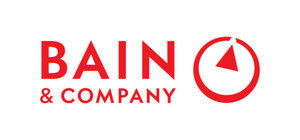LONDON, Sept. 3, 2019 /PRNewswire/ -- European banks are struggling to keep up with US banks in the capital markets business, and without charting a new course, they will see their share and overall prospects decline further. For capital markets as a whole, Bain & Company forecasts a base-case scenario in which global revenues will grow by 5 percent to $231 billion by the end of 2021, led by the fixed-income and M&A businesses.
To become more competitive, Europe's banks will have to accelerate their digital investments, upgrade their talent, raise their sales and marketing prowess, and improve their external partnerships. These are the findings from Bain & Company's new report, 'How Europe's Banks Can Regain the Capital Markets Business at Home.'
"European banks have struggled to compete in the years following the global financial crisis, but there are clear actions that they can take to regain their footing, especially in the capital markets business," said Mike Kuehnel, a partner at Bain & Company and lead author of the report.
Bain & Company's research outlines four imperatives for banks:
1. Accelerate select investments in digital technologies
All capital markets competitors have been stepping up technology purchases and upgrades to wring efficiency from operations, develop new services or raise service quality. Categories of technology vary greatly in their expected impact in the years ahead. Financial services executives expect machine learning, AI and blockchain to have the greatest impact by 2025, according to a Cognizant survey. Looking across the lines of business, Bain expects robotic process automation, digitization and blockchain to produce the largest effects in credit, commodities and rates (trading of sovereign bonds, derivatives, options on swaps and other products).
2. Upgrade the talent model
The evolution of capital markets requires rethinking the role of bankers for tomorrow's environment. They will need to be more adept at using technology and leveraging data-driven insights, and professionals with those skills are hotly pursued by many industries. As the appeal of investment banking has dwindled, junior candidates have increasingly chosen careers with promising fintechs, major technology firms or even nonfinancial corporations.
When Bain interviewed executives at banks' client companies, they consistently cited relationship management as the most dominant factor in recommending their "core bank." In this context, they put the highest value on responsiveness, a proactive approach and stability of the bank's coverage. To excel in relationships, banks will need to invest in frontline talent, mobilize the right sector and product specialists in the right place at the right time, and embed the client's perspective into the chosen strategy. Winning banks, in sum, will be those that offer the most attractive talent model and performance culture.
3. Raise the game in sales and marketing
More effective cross- and upselling comes from articulating a clear ambition, laying out a detailed account-by-account plan, and aligning compensation and other incentives. Rather than simply responding to RFPs, banks with advanced commercial instincts identify clients with the greatest potential for ongoing, profitable business. European banks, in particular, have an opportunity to look beyond the largest clients to find attractive midsize clients. That franchise holds large potential value, as midsize companies still want close geographic proximity to their bankers—a preference that favors European, not US, banks.
4. Look outside to the broader ecosystem
Examining the entire capital markets value chain may uncover opportunities for cultivating external partnerships with fintechs, market infrastructure players and nonbank participants to upgrade a capability or fashion a better product. Keeping options open is key, so it's worth considering a reasonably large number of potential partners. It is also key to understand the cultural challenge and the mindset shift that will be required over time—that is, to regard fintechs not as competitors but as potential partners that could help a bank to become more agile and innovate.
To map out an effective path on these imperatives, banks need to view the business through its purpose, rather than its products," said Christian Graf, a partner at Bain & Company and a co-author of the report. "This purpose should flow from its core capabilities and it takes a rigorous review of the bank's strength from a strategy perspective to define the right moves and commit to any necessary transformation."
For an interview with Mike Kuehnel or Christian Graf, please contact Aliza Medina at [email protected] or +44 20 7969 6480.
About Bain & Company
Bain & Company is a global consultancy that helps the world's most ambitious change-makers define the future. Across 58 offices in 37 countries, we work alongside our clients as one team with a shared ambition: to achieve extraordinary results that outperform their competition and redefine their industries. We complement our tailored, integrated expertise with a curated ecosystem of digital innovators to deliver better, faster and more enduring outcomes to our clients. Since our founding in 1973, we have measured our success by the success of our clients. We proudly maintain the highest client advocacy in the industry, and our clients have outperformed the stock market 4:1. Learn more at www.bain.com and follow us on Twitter @BainAlerts.
SOURCE Bain & Company

Related Links
WANT YOUR COMPANY'S NEWS FEATURED ON PRNEWSWIRE.COM?
Newsrooms &
Influencers
Digital Media
Outlets
Journalists
Opted In




Share this article